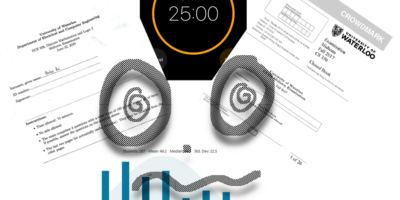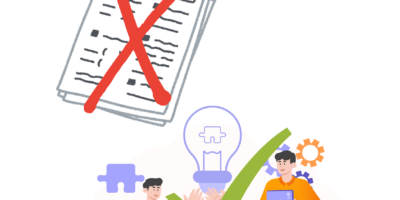Let me begin this with a qualifier: I vote. At every election since I turned 18 (the arbitrary age at which I am considered mature enough to participate in this activity) I have dutifully headed to the polls to check off the name beside a candidate whose policies I mostly disagree with in order to prevent the candidate whose policies I completely disagree with from being elected. Ta da! I have performed my civic duty. Now I can go hide from politics for the next four years.
Voting is heralded as the most important act of political engagement we can participate in. After all, everyone gets an equal voice and together we get to collectively choose our leaders and governing parties. What possible reason could one have to reject this opportunity? Those who do so are considered poor citizens who don’t take their civic duties seriously. In certain countries there are even fines for not voting. Which is ridiculous. I’d like to take this opportunity to argue that the act of not voting can be just as (or more) powerful a political statement as casting the ballot.
The arguments for not voting are well-known and vast. Among the most common is the far too often realization that the choices of candidates and leaders simply do not reflect our vision. What to do, when say as a struggling student all you’d like is to be able to graduate university without thousands of dollars of debt and the best a political party is able to offer you is a tuition freeze at current levels, ($14000+ a year for UW Engineers!)? Clearly, no one meets the requirements of what you’re looking for in someone to represent you. Proponents of voting will tell you the answer is simple: Reject your ballot! Go to the polling station and don’t check of any of the candidate names. Make it clear that you are not satisfied with any of the presented ideas. But while rejecting a ballot will make your disagreement with the current choice of candidates clear, it will show a tacit agreement with the system of voting itself. And I for one would like to question that system.
Let’s pause for a second to understand Canadian “democracy.” Canada has what is termed a representative or parliamentary democracy. In this system voters go to the polls every four years or so to choose between a set of candidates to represent their local region. Most of these candidates belong to a federal (or provincial) party. The party with the most candidates elected becomes the governing party and its leader the Prime Minister (or premier). The governing party now has the right (as granted by “the people”) to rule for the next four years and implement any regulations they choose, change any policies and basically follow the whim of the party leader until the next election when they will have to justify (or hide) some of their actions to the public. This sounds exaggerated but you only need to consider the actions of the current Canadian government under Stephen Harper to understand that within Canadian “democracy” a governing party can pretty much do as they please. From partisan politics, to the idea of representative democracy itself, there are obviously a lot of problems with this system and it wouldn’t be hard to understand why someone might disagree with it completely. I, for one, would count myself in that category. So what use is rejecting a ballot to those of us who’d rather do away with the system of representative democracy altogether? What if I’d rather we as a society work towards a world of direct democracy and collective decision making (suspend your ridicule for a moment and work with me here)? What do we get out of voting – even if it’s to reject a ballot? Not much. In fact we might harm our own cause by voting and tacitly claiming we are okay with the current system.
But let’s step away from theoretical discussions of representative vs. direct democracy and re-examine the system we do have. The question we’re discussing is whether disenfranchised voters should reject their ballots as a form of expressing their discontent. Here’s my issue with that statement: the idea that disenfranchised voters will always exist. Disenfranchisement describes the denial of a right or privilege, most commonly used to describe denial of power. So a disenfranchised voter is one who feels that they have been denied the power their vote should have.
I would argue that within the current political system, all voters are disenfranchised. And this is a problem that is directly tied to the concept of voting itself. Think back to a high school civics class when you were first taught the about the political system. We learned the roles of all the different actors, the Prime Minister, the House of Commons, the Governor General, the Senate and even the Queen. Each of these people played an important role in the political system. And what about us the average citizens? Our role was to elect the people who played the important roles. This is what we have been taught as the main way to engage in politics – by voting. Other forms of political engagement, from petitions to protests and direct action (and writing news articles) are rarely taught.
And this is a truth that proponents of voting rarely seem to catch on to. Important political change rarely happens through transfers of government. Throughout most of history in fact, political change has happened through groups of people engaging in the political systems outside of the box that is deemed appropriate. From the anti-apartheid movement in South Africa, to the end of Vietnam War in the U.S. and even the Quebec tuition strike, it’s easy to see that political change is actually brought about by recognizing that we as citizens hold power, not just the ability to mark a ballot.
So yes, disenfranchised voters can reject their ballots and show their discontent to the vote counters at the poll and increase the statistics of unhappy voters by a margin of 0.001%. And if that’s something you’re set on doing please do so. But if you truly feel disenfranchised and unhappy with the current electoral system (and you should!) then I would urge you to also find other ways of engaging in politics that will leave you feeling less disenfranchised and more aware of your ability to create change. A university campus is probably the best place to become an active political citizen. Find a local organization or group that is working to change something you care about (be it the ridiculous amounts we pay for tuition or the lack of vegetarian food options on campus) I guarantee you there’s a group of people out there trying to change it. As someone who would consider myself a very politically engaged citizen voting actually falls pretty much at the bottom of the list of political activities in which I engage.
Finally, I’ll leave you with the words of Emma Goldman, revolutionary and labour rights activist “Voting doesn’t change a thing. If it did, they’d make it illegal.”




Leave a Reply